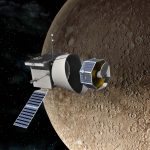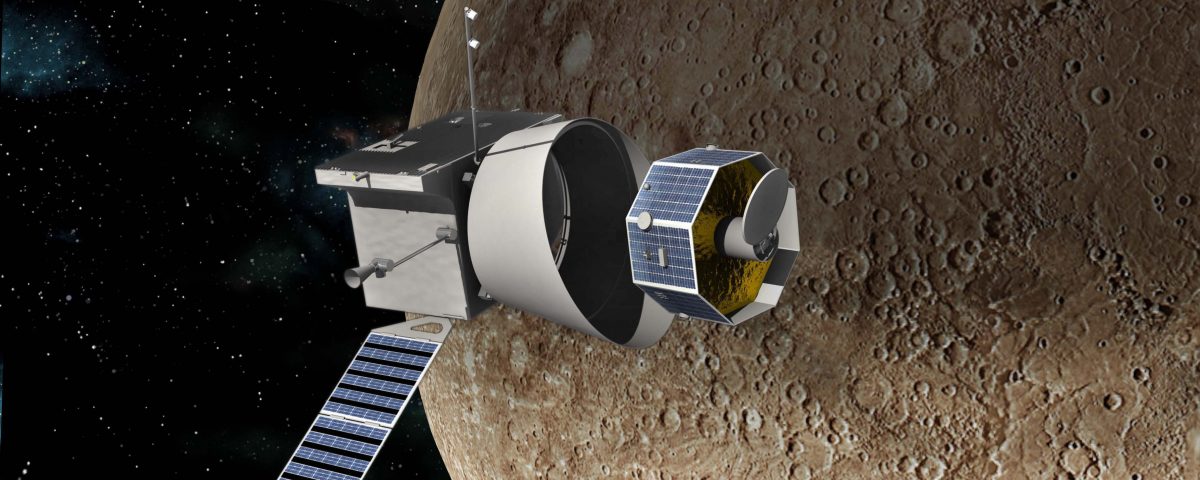
Job ID: SCO-133
Deadline: 11 April 2017
Aurora is an established supplier of skilled manpower to ESA and in particular at ESTEC and ESAC. Aurora has the opportunity to expand our support within ESAC.
Overview
BepiColombo is a joint ESA-JAXA mission to Mercury. The mission comprises two spacecraft, ESA’s Mercury Planetary Orbiter (MPO) and JAXA’s Mercury Magnetospheric Orbiter (MMO). The two spacecraft will be launched in 2018 with arrival at Mercury in 2025.
The activities of the MPO Science Ground Segment (SGS) include Science Operations Planning of the MPO payload, science data processing and data distribution to the instrument teams, quick look data analysis of science data and archiving of data in the BepiColombo science archive.
The MPO SGS has interfaces with the Operational Ground Segment (OGS) at ESOC, the MMO JAXA Sagamihara Space Operations Centre (SSOC), the MPO Instrument Teams and the Scientific Community. The SGS is based at the European Space Astronomy Centre (ESAC) in Villanueva de la Cañada, Madrid, Spain.
This service covers development and operational activities to be carried out in the area of Downlink, Data Analysis (QLA) and Archiving (PSA).
The period covered spans from June 2017 (approximately one year before launch) to TBD..
The service provided will contribute to:
- Definition, implementation and set up of the Science Overview & Quick-Look functionalities required for the Cruise and Mercury Science phases.
- Generation of science quick-look products in close collaboration with the Instrument Teams.
- Operation of the Science Data Processing and Quick Look Systems after launch and analysis/assessment of the scientific products.
- Generation of higher-level science products.
- Enhancement of the BepiColombo science archive.
Specific Service Tasks
1. Service to be provided in support to the Science Quick-Look Analysis (QLA) implementation and operation.
The following main activities will have to be carried out BEFORE LAUNCH:
- Contribute to the BepiColombo Science Quick-Look Analysis (QLA) System requirement specification and design, by assisting in the definition of user requirements and reviewing/assessing completeness and adequacy of system being designed and implemented.
- Specify routines/algorithms for the generation of science quick-look products in collaboration with the instrument teams, and follow up their implementation with the SGS Software Team.
- Support the development of the Quick-look Analysis System.
- Interact with the Project Scientist and the Instrument Teams during the implementation of the Quick-look Analysis functionalities and make sure that their needs & requirements are properly captured.
- Participate in Science Quick-Look Analysis and Data Processing System integration, validation and acceptance testing.
- Prepare the procedures for operating the QLA system and for the assessment of the QLA products.
- Participate in the Operational Rehearsals and support the validation of QLA procedures and processes.
- Cooperate with other projects on data handling, quick-look analysis and archiving matters i.e. promote the exchange of information with missions that have various similarities with BepiColombo (e.g. Rosetta, EXOMARS, JUICE, SOLO).
The following main activities will have to be carried out AFTER LAUNCH:
- Operate the QLA System and participate in the QLA product generation.
- Validate the QLA routines with in-flight telemetry.
- Contribute to the refinement of the QLA system (e.g. User Interface) and its operational maintenance (e.g. performance monitoring, detection/reporting of anomalies, etc.).
- Interact with the Instrument Teams, as required, for the assessment / interpretation of the QLA results.
- Refine operational procedures and processes.
- Follow-up implementation of system bug fixes/improvements (SPRs, SCRs,..), and validate accordingly; interface and coordinate with the SGS Software team as required.
- Analyse the scientific products generated by the Data Processing System; interface with the teams to understand anomalies, improve quality, etc., as required.
- Support the Help Desk function.
2. Service to be provided in support to the BepiColombo Archive development and operation.
- Provide general support to the SGS Science Data Processing and Archiving Coordinator.
- Provide consultancy and support to the Instrument Teams for the definition of their science products.
- Support internal reviews of the science products during the design phase.
- Support and follow-up the production of all relevant instrument archive documentation (e.g. EAICDs, calibration reports) by the Instrument Teams.
- Provide support to the BepiColombo Science Archive development and follow-up the BepiColombo Archive implementation.
- Support the definition of requirements for the Planetary Science Archive (PSA), including the handling and visualisation of quick-look products as well as the map view functionalities.
- Participate in the Archive Validation & Testing activities.
- Actively participate in the analysis of the Near Earth Commissioning phase products.
- Support the verification and validation of all science data deliveries from the instrument teams before delivery to the scientific community.
- Support the organization of Science Archive peer reviews, as required.
- Follow up the population of the Archive with the initial data sets and contribute to their validation and quality control.
- Support to data users (helpdesk, data workshops, conferences).
- Support the definition, specification and production of higher-level data products (e.g. maps) for distribution to the scientific community, and the enhancement of existing data sets in collaboration with the Instrument Teams.
- Support the definition and evaluation of methods and tools for in-flight calibrations.
- Support the reconstruction of the observations geometry and the definition and generation of geometry products as required.
- Provide Support to the Project Scientist (e.g. SWT, Conferences, Scientific workshops, etc.) as required.
- Participate in Scientific Working Groups as required.
Specific qualification requirements
- At least a PhD or equivalent qualification in astronomy, physics or a related discipline.
- Proven experience in planetary science and data processing of space-based data.
- Expertise with planetary data analysis, reduction and calibration software.
- Knowledge on instrumentation in at least two scientific disciplines (remote sensing, radio science, spectral imaging, particle and plasma physics, in-situ measurements).
- Good knowledge of space geometry concepts and use of other ancillary information including experience with the SPICE ancillary information system.
- Knowledge of the Planetary Data System (PDS) standards.
- Experience of scientific data handling for usage in Planetary Science Archives.
- Experience in providing support and interacting with instrument scientists and engineers, and with the scientific community is an asset.
- Knowledge of science operations is an advantage.
- Excellent analytical and communication skills, and a pragmatic and proactive attitude to resolving problems.
- Excellent communications skills.
- A high level of written and spoken English is essential.
Legal and Security Requirements
- All applicants must be legally allowed to work in Spain without the need to obtain a work visa. Only European Union citizens can be employed by Aurora in Spain.
- Applicants are required to provide a copy of their passport and degree certificate. Aurora will validate the Degree with the issuing University and provide evidence to ESA.
- In line with ESA’s security requirements, prior to issuing a letter of employment the applicant shall provide to Aurora a recent official document declaring that they are of good conduct from the country where currently resident, and Aurora will validate your employment history.
Location
It is expected that the work will be performed at the ESAC, the European Space Astronomy Centre, at Villafranca del Castillo, near Madrid, Spain.
Contract
- You will be registered for both social security and tax in Spain.
- The standard working hours are 40 per week. There are 12 public holidays and an additional 30 annual days holiday.
- In addition to public health services Aurora provides private medical insurance in Spain.
- Training to improve efficiency and provide strength for future career are of course included.
- Aurora can assist financially and provide recent experience information for relocation.
To be considered for this Position
Provide prior to 11 April 2017 a summary of why you are a good candidate for the position together with a complete and detailed
Recruitment Form or your CV with a motivation letter to Mr. Davide Starnone, at email davide.starnone@aurora.nl quoting reference SCO-133.
Aurora will agree conditional employment terms and conditions with candidates before presenting their detailed technical proposal and candidates to ESA by 17 April 2017, 13:00 hours.

